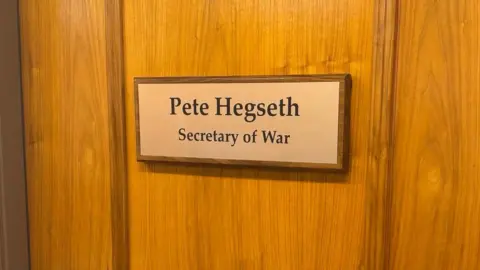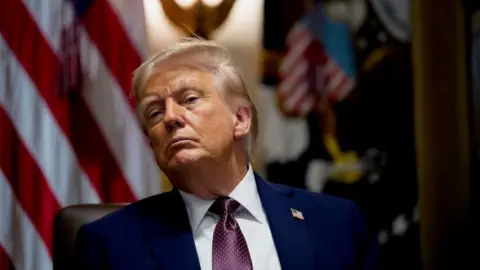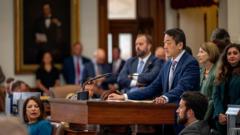In an unexpected turn of events on June 21, 2025, President Trump ordered targeted airstrikes on three Iranian nuclear facilities, prompting immediate praise from key Republican figures in Congress. Speaker of the House Mike Johnson and Senate Majority Leader John Thune publicly supported the military action, asserting it was crucial to deter Iran's nuclear ambitions. This support is particularly significant as it comes amidst broader calls for diplomatic resolutions.
“The regime in Iran, which threatens our nation and our allies, has turned down every offer of peace,” Thune remarked, highlighting the administration's stance against perceived Iranian aggression. Both Johnson and Thune acknowledged that they received prior briefings on the strike, positioning themselves alongside Trump's assertive foreign policy.
However, the response was not uniform across party lines. Senior Democrat leaders and some Republicans voiced concerns regarding the lack of congressional consultation prior to the airstrikes. Critics argue that Trump’s unilateral action could escalate U.S. involvement in a deeper conflict within the region. This raises constitutional questions about the extent of presidential powers in military engagements without congressional approval.
As the political fallout continues, the implications of these actions may shape future dialogues on U.S. foreign policy and military authority. The dual narratives of required strength versus the need for restraint create a complex backdrop against which lawmakers will navigate the implications of this military intervention.
“The regime in Iran, which threatens our nation and our allies, has turned down every offer of peace,” Thune remarked, highlighting the administration's stance against perceived Iranian aggression. Both Johnson and Thune acknowledged that they received prior briefings on the strike, positioning themselves alongside Trump's assertive foreign policy.
However, the response was not uniform across party lines. Senior Democrat leaders and some Republicans voiced concerns regarding the lack of congressional consultation prior to the airstrikes. Critics argue that Trump’s unilateral action could escalate U.S. involvement in a deeper conflict within the region. This raises constitutional questions about the extent of presidential powers in military engagements without congressional approval.
As the political fallout continues, the implications of these actions may shape future dialogues on U.S. foreign policy and military authority. The dual narratives of required strength versus the need for restraint create a complex backdrop against which lawmakers will navigate the implications of this military intervention.





















